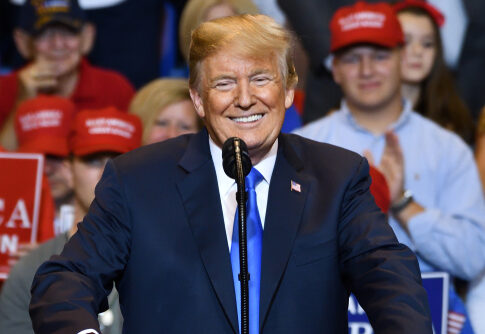In the aftermath of the second assassination attempt on Donald Trump, Senator Chris Murphy (D-CT) placed partial blame on the former president himself, suggesting that Trump's rhetoric has fostered a culture of political violence. The failed attack on Trump, which occurred at his Mar-a-Lago estate on Sunday, September 15, was the latest in a string of threats against the controversial figure. The suspect, identified as Ryan Wesley Routh, had allegedly been planning the attack for weeks.
Murphy took to social media, expressing his condemnation of the violence but also emphasizing that Trump has been a central figure in promoting political aggression. In his post, Murphy said, “It’s heartbreaking and unacceptable that Donald Trump was once again the target of political violence. But no leader has done more to inspire and endorse political violence than Donald Trump.” His comments sparked outrage from Trump supporters, who viewed them as an attempt to deflect responsibility from the left-wing elements that had allegedly targeted Trump.
I went to the Senate floor today to block a Republican resolution that sought to make out transgender kids as a threat to this nation.
I told the real story of transgender kids and sports, and the shameful Republicans efforts to bully and marginalize them. pic.twitter.com/ScqaXgX672
— Chris Murphy 🟧 (@ChrisMurphyCT) September 17, 2024
This isn't the first time Trump has faced assassination threats. Earlier this year, a gunman opened fire at a rally in Pennsylvania, narrowly missing Trump but killing one attendee. Following that incident, conspiracy theories surged online, with many claiming that anti-Trump factions were behind the attack. Some of these theories even suggested involvement by the "deep state" and Democratic elites.
Murphy’s remarks have been met with fierce backlash, particularly from conservatives. They argue that the senator’s statements amount to excusing violence against political opponents. Critics also pointed out that Murphy, along with other Democrats, has been quick to blame Trump for violence while ignoring violent rhetoric from the left. Supporters of Trump claim this is part of a larger pattern of vilifying the former president while downplaying the actions of groups like Antifa and other left-wing extremists.
US Senator Chris Murphy and State Senator Duff are liars 9/12/24.
CRIME is not DOWN.
We just had 75 car break-ins and thefts overnight. In one night in just NORWALK. pic.twitter.com/0Mj2gVmXY8
— 2024 John Flynn US Senate Candidate For CT (@Flynn2022) September 13, 2024
Adding to the controversy, former Republican Congressman Adam Kinzinger also chimed in, accusing Trump’s MAGA movement of igniting the current wave of political hostility. Kinzinger claimed that Trump has played a significant role in turning U.S. politics into a battleground of division and hate, though he condemned violence from all sides.
His remarks echoed Murphy’s stance, creating a contentious narrative that Trump's behavior is fueling the cycle of political violence.
The political climate in America has been particularly volatile as the 2024 presidential race intensifies. Trump, still a dominant figure in the GOP, has consistently positioned himself as a victim of targeted attacks by the "radical left." His supporters view the assassination attempts as part of a broader campaign to silence him.
While both sides agree that political violence must be condemned, the debate over who is responsible has only deepened the partisan divide. Figures like Senator Murphy have called for a de-escalation of hostile rhetoric, urging political leaders to take responsibility for the atmosphere they help create. But as the 2024 election looms, with Trump again a central player, it remains to be seen whether the country can move past this dangerous cycle of violence and division.

